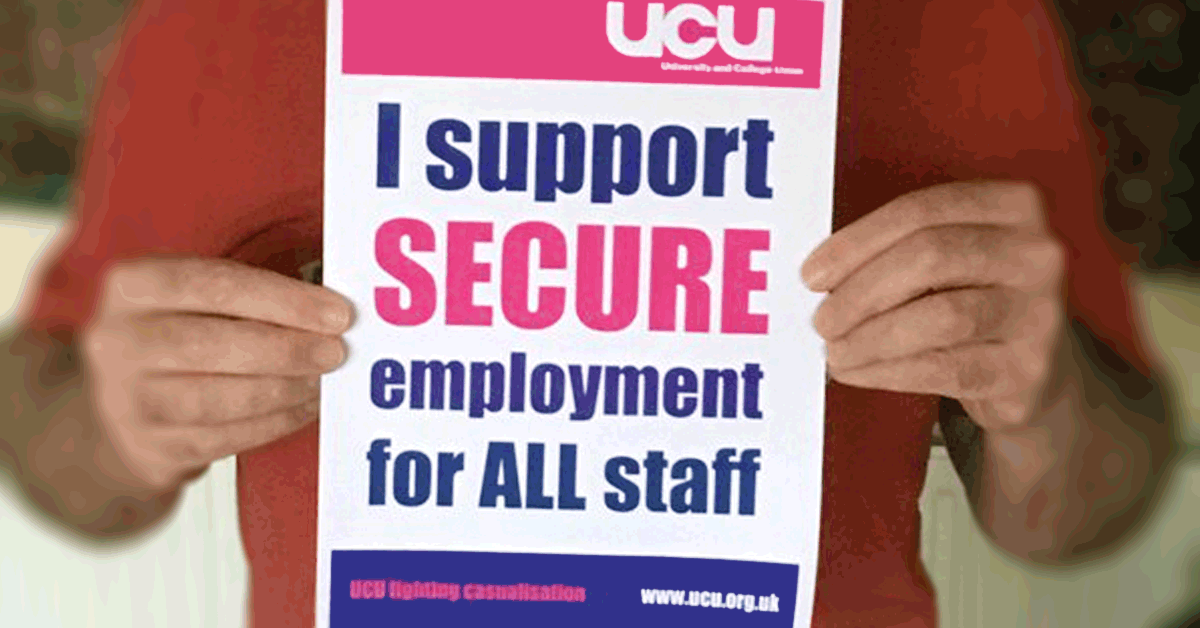UCU comment on increase in number of people on zero-hours contracts
8 September 2016
UCU said today that there needed to be better information collected on the number of people on zero-hours contracts as new figures suggested the number employed on a zero-hours basis had increased by a fifth in the last year.
The Office for National Statistics reports that 2.9% (903,000) of the employed UK workforce say they work on a zero-hours basis in their main job - an increase of 21% from 2015 when 2.4% (747,000) said they did.
UCU said that the total number of people on zero-hours contracts was likely to be even higher as the survey only records people who recognise that they are on such a contract. The report recognises that some people may mistake a zero-hours contract for being "on call" and not be recorded.
The union added that people would be shocked at the prevalence of zero-hours and other forms of casual contracts in colleges and universities and urged employers to work with the union to gather meaningful data on the problem. UCU's own findings suggested that around half (49%) of teaching staff in UK universities are employed on some form of insecure contract.
UCU general secretary, Sally Hunt, said: 'The use of zero-hours and other types of casual contracts in education is a real problem and colleges and universities can no longer shirk their responsibility to staff. People would be shocked to learn that the types of contracts they associate with Sports Direct are being used to employ the people who teach their children.
'We are calling on colleges and universities to work with us to produce proper data that details the true extent of the use of these types of contracts and work with us to eradicate them. Providing decent working conditions for staff can only help improve the experience for students and an institution's reputation.'
The report also found that:
- on average, someone on a zero-hours contract worked 25 hours a week
- however, nearly a third (31%) wanted to work more hours, with most wanting them in their current job
- over half (55%) of people reporting working on a zero-hours contract are women
- people who report being on a zero-hours contract are also more likely to be young; over a third (36%) of people on zero-hours contracts are aged 16 to 24.
- PrintPrint this page
- Share




Comments